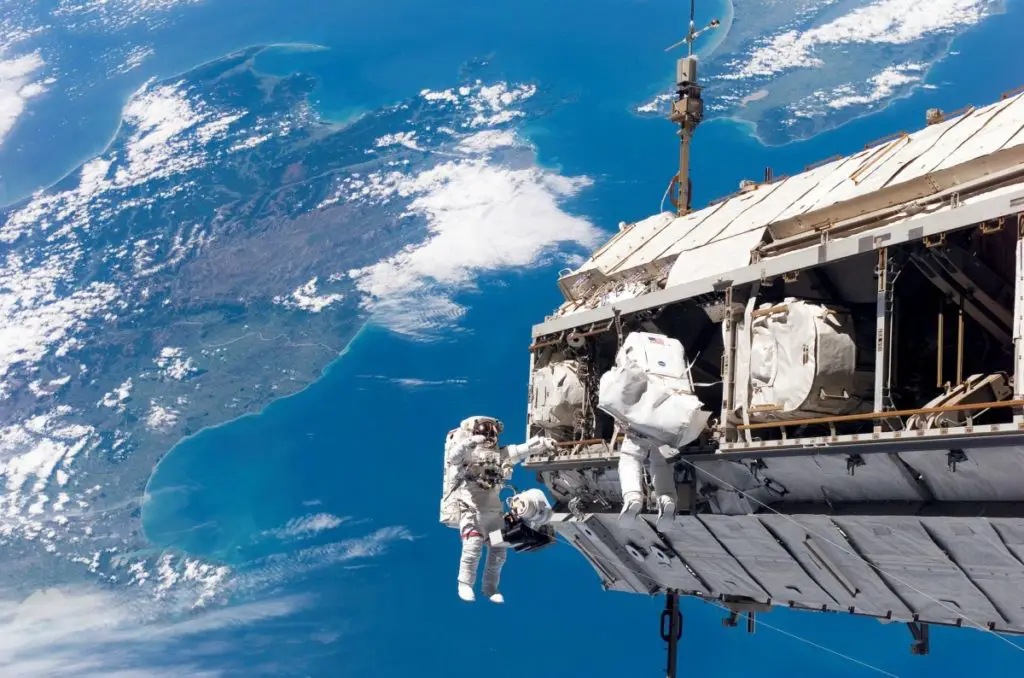In a previous article, we investigated the laws that have enforced the use and exploration of outer space since 1967, which was agreed upon, signed, and ratified by 105 countries across the world. But, however well it may have worked, the state of the space industry is noticeably not the same as it was 50 years ago.
The rapid commercialization of space travel is bringing to concern unprecedented ways space law could advance. Whether that be for new types of crimes, new legal jurisdictions, or more importantly the means to which humanity can uphold the peace in the face of a new frontier.
The New Jurisdiction of Space Crimes
As even the concept of space travel was foreign to the human race until 60 years ago, it is hard for us to provide predictions as to what types of mutiny might occur in space. But where there are human beings, there is inevitably conflict; It’s just a new context to which they exist.
With the advancement of space travel – space tourism and space hotels may very well become the norm at the turn of the next century (1). Whether it be a conflict between ill-tempered customers, robbery, theft, or murder, we will need new laws and new law enforcement measures to deal with these old threats in a new light.

Under consideration, the existence of cosmonaut cops seems very necessary to uphold the peace in this new jurisdiction. However, without legalizing treaties between nations on Earth, even minor conflicts in space might escalate to incidents of an international scale, as each state will undoubtedly try to protect their own interest, whether it be political or otherwise (1).
Probable solutions might involve the literal creation of new jurisdictions, where its inhabitants are given citizenships and authority to resolve the conflicts of their respectful planet.
To the same end, space tourism isn’t the only industry that might be under the effects of human nature. More and more spacecrafts are needed as humanity expands to the outrebounds of the universe. Communications between headquarters and their spaceships might become limited the further they venture out into the unknown, and any negligence or criminal behaviour might jeopardize the lives of everyone onboard without proper guidelines. How to deal with and who has the authority to deal with these situations needs to be clearly defined before the spacecraft leaves the station (1).
How can humanity uphold peace in outer space for the coming future?
The first step to determine how criminal law can effectively deter criminal acts is understanding its application under different circumstances. Which in this context refer to the establishment of the local authority (sovereignty) over territories in space, as nations on Earth cannot lay claim to specific locations in the cosmos. Wide ranges of laws and measures need to be in place before sovereignty can be established, otherwise avoiding the creation of a lawless vacuum that gives the term “new frontier” a whole new meaning.
Although there have not yet been regulations agreed upon to guide the proper establishment of sovereign states in space or specific criminal jurisdictions, the existing Outer Space Treaty is clear in who should bear legal responsibility for the results of any space ventures – the nation that put the person or object there in the first place.
In the case of criminal jurisdiction, NASA is currently investigating what might be the first crime perpetrated in space since the establishment of the Intergovernmental Agreement, where the agency’s astronaut Anne McClain was accused of illegally accessing her wife’s bank account on the ISS.

Whether this accusation constitutes a crime or legal matter is entirely irrelevant to the point I am trying to make. Whichever way it goes, the Intergovernmental Agreement (IGA) on Space Station Cooperation states that countries involved in the ISS has criminal jurisdiction over their own personnel in space, as long it doesn’t affect an astronaut of a different nationality (The Verge). Regarding McClain and her wife, as they are both US citizens, only American laws would apply in this situation.
Privatization wise, the International Space Station is retiring within the 2020s to a commercial replacement from Axiom Space. It makes no sense for private companies to adhere to sovereign laws and authorities, and involve diplomatic measures between nations for everyday human issues (The Verge).
Without considering the possibility of establishing individual sovereign states on celestial bodies in the near future, nations on Earth will still need to create and expand their existing laws to encompass criminal activities in outer space or broaden the scope to capture a greater range of offenses (1). This will not only set the foundation for pursing commercial spaceflight at a national level but also do so without any legal voids (1).
What can we do now?
The plausibility of cosmonaut cops is not completely without reason, but the state of current development in space technology will not require specialized law enforcement anytime soon. What is more realistic would be the “adoption of a universal criminal code for space that would be interpreted and enforced by the courts of individual nations.” (1) Given the number of nations that may one day take to the skies with commercial spaceflight, such a document needs to strike a fine balance between specificity and political acceptability.
In the end, to accommodate for the differences in culture and national values, it may be difficult for each nation to agree on the actions that would constitute a criminal offense, as well as the range of penalties associated with it (1). What we might end up with will be a document with loose standards containing broadly worded criminal offenses that’s much too vague to provide legal certainty (1). Perhaps with the advancement of spaceflight, the creation of a more specified criminal code will emerge out of necessity, as to avoid outer space devolving into a lawless region controlled by a central power (1).
If you’re interested in more about the future of space law and how it could make outer space a safer place (the first time around), I highly recommend you check out the referenced paper. I wrote this article after examining its most relevant points and hoped to make the broad and vague topic of space law enforcement a little easier to understand.
References
- Lee Seshagiri, “Spaceship Sheriffs and Cosmonaut Cops” (2005) 28:2 Dal LJ 473.
